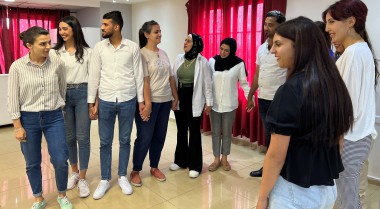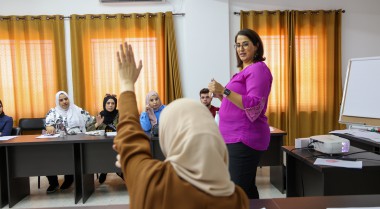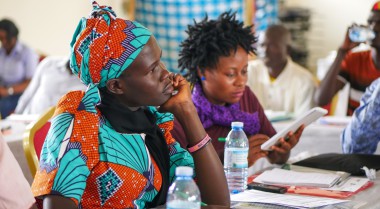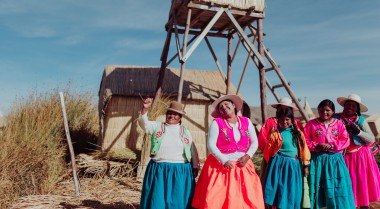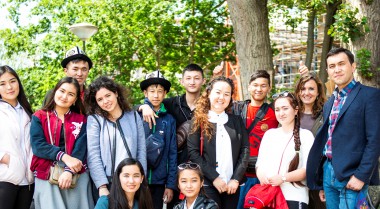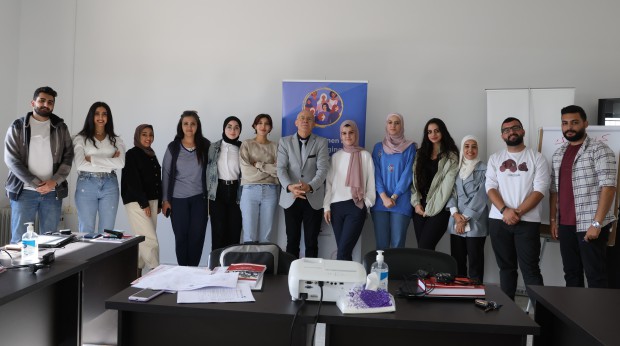
Women Leading Peace
Starting July 2023, GPPAC member Foundation for Tolerance International (FTI) and its civil society partners lead a six-month project across Kyrgyzstan, Uzbekistan, and Tajikistan borderlands — their goal: to enhance local women's influence and active participation in peace processes.
Building peace amidst border conflicts
The project comes at a critical moment. In September 2022, conflict spiked between Kyrgyzstan and Tajikistan over a long-disputed stretch of land between the two countries. At the same time, a series of political agreements on border delimitations between Kyrgyzstan and Uzbekistan fuelled tensions amongst local people over access to land, water, and natural resources. Despite ceasefire agreements and government commitments, achieving lasting peace remains distant.
For many people, living in the borderlands has become nearly impossible. People have been compelled to abandon their homes, making way for military zones, while others have chosen to escape their homeland, driven by the fear of escalating violence. This is why amplifying the voices of women and local communities who bear the brunt of this conflict is crucial to building sustainable peace in such a challenging context.
The project: Elevating women's influence
GPPAC member FTI is leading a six-month project in partnership with GPPAC and with the financial support of the United Nations Women’s Peace and Humanitarian Fund Rapid Response Window. The project aims to promote dialogue among women from Kyrgyzstan, Tajikistan and Uzbekistan and empower them to influence high-level decision-making and peace processes in Central Asia. FTI and its civil society partners will consult with local communities and women in border regions and facilitate evidence-based policy discussions with decision-makers. They will also launch advocacy campaigns that promote women's indispensable participation in peace dialogues.
Empowering women: The pathway to peace
The meaningful inclusion of local women's perspectives is vital to achieving sustainable peace. Women often represent the backbone of their communities, nurturing cohesion, reconciliation, and healing during and after conflicts. This is also the case in the border areas of Kyrgyzstan, Tajikistan, and Uzbekistan, where women actively engage in peacebuilding initiatives, offering innovative solutions to the conflicts in the region. Yet, their voices are locked out of high-level peace talks, where decision-making powers remain in the hands of men.
In the past, local women leaders have forged strong bonds with each other to build good neighbourly relations within the borderlands. However, cross-border activities are limited today due to the open fighting and the restrictions imposed by national authorities on such initiatives. It is time to revive cross-border cooperation and pave the way for peaceful coexistence. It's time to recognise and empower local women who hold the keys to lasting peace.
Local women take concrete steps for peace.
During a workshop organised by FTI and funded through the WPHF Rapid Response Window, women leaders from Kyrgyzstan, Tajikistan, and Uzbekistan developed a step-by-step plan to influence the implementation of peace agreements and future negotiations in Central Asia. Following the workshop, the six-month project brings women peacebuilders together again to translate their plan into action.
The project amplifies the voices of local women living in the borderlands by hosting local consultations and identifying entry points where they can influence the peace processes in the region. FTI adopts a trauma-sensitive approach to conduct dialogue sessions, providing a safe space for individuals affected by conflict-related trauma to engage in peacebuilding.
The outcomes of these consultations lay the foundation for national and regional advocacy campaigns, drawing public attention to the needs and demands of women and their local communities. FTI and its partners have extensive experience collaborating with decision-makers in Kyrgyzstan, Tajikistan, and Uzbekistan. They can provide the channels for local women's voices to reach the ears of national decision-makers. In this way, women leaders have the opportunity to engage with policy-makers and advance concrete recommendations to make the peace processes in Central Asia truly inclusive towards women's and local perspectives.
About the United Nations Women's Peace and Humanitarian Fund Rapid Response Window
The WPHF Rapid Response Window for Women’s Participation in Peace Processes and the Implementation of Peace Agreements is a funding mechanism of the United Nations Women's Peace and Humanitarian Fund that addresses urgent funding gaps with targeted, short-term support to increase women's participation in peace processes and the implementation of peace agreements.
WPHF is a flexible financing tool supporting quality interventions to enhance the capacity of local women to prevent conflict, respond to crises and emergencies and seize key peacebuilding opportunities.
